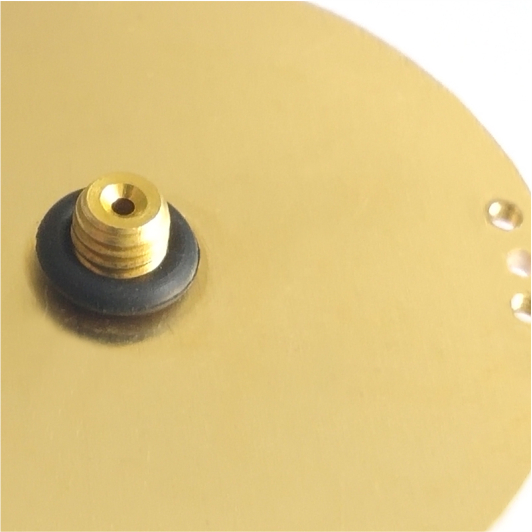
dec . 31, 2024 05:14 Back to list
Top Diaphragm Seal Differential Pressure Gauges for Accurate Measurements
Understanding the Best Diaphragm Seal Differential Pressure Gauge
In industrial applications, accurate pressure measurement is vital for both safety and efficiency. Among the various types of pressure measurement devices, the diaphragm seal differential pressure gauge is a highly reliable instrument designed to measure pressure differentials in challenging environments. This article explores what a diaphragm seal differential pressure gauge is, its advantages, and key considerations when selecting the best one for specific applications.
What is a Diaphragm Seal Differential Pressure Gauge?
A diaphragm seal differential pressure gauge consists of a pressure gauge paired with a diaphragm seal. This seal is a flexible element that isolates the measuring instrument from the process media, allowing for accurate measurements while protecting the gauge from harmful or corrosive substances. The diaphragm moves in response to pressure changes; this movement translates into a readable output, typically displayed on the gauge face.
Advantages of Diaphragm Seal Differential Pressure Gauges
1. Protection Against Process Media One of the primary benefits of using diaphragm seal gauges is their ability to shield the measuring element from aggressive or viscous fluids. This is especially important in industries such as petrochemicals, pharmaceuticals, and food processing, where contamination and corrosion are significant risks.
2. High Accuracy These gauges provide precise measurements of differential pressures, which are essential for processes like flow measurement, tank level monitoring, and filtration processes. Their design minimizes errors, ensuring that operators can rely on the readings.
3. Versatility Diaphragm seal gauges are available in various materials and configurations, making them suitable for diverse applications. They can handle a wide range of pressures, temperatures, and fluid types, ranging from clean and non-aggressive liquids to corrosive gases.
4. Reduced Maintenance By isolating the gauge from the process media, diaphragm seals significantly reduce the need for maintenance and calibration. This longer service life translates to lower operational costs and increased uptime.
5. Adaptable to Non-ideal Conditions Diaphragm seal technology can accommodate non-ideal conditions such as high temperatures, high viscosity fluids, and slurries. This adaptability makes them ideal for processes that experience fluctuating conditions.
best diaphragm seal differential pressure gauge

Key Considerations for Selecting the Best Diaphragm Seal Differential Pressure Gauge
When looking for the best diaphragm seal differential pressure gauge, consider the following factors
1. Material Compatibility Ensure that the diaphragm material is compatible with the process media. Common materials include stainless steel, PTFE, and other alloys that can withstand corrosive substances.
2. Pressure Range Determine the appropriate pressure range for the application. Gauges are available in various ranges, so it’s essential to select one that fits the expected operating conditions.
3. Temperature Limits Consider the temperature of the process media, as extreme temperatures can affect gauge performance. Choose a gauge with suitable temperature ratings for optimal functionality.
4. Calibration and Maintenance Look for gauges that are easy to calibrate and maintain. Some models offer features that simplify these tasks, ensuring continued accuracy over time.
5. Installation Requirements Assess the installation environment and space constraints. Some diaphragm seal gauges may require specific mounting configurations or auxiliary equipment for optimal performance.
Conclusion
Diaphragm seal differential pressure gauges play a crucial role in various industrial applications by providing reliable and accurate pressure readings while protecting the gauge from harsh conditions. When selecting the best gauge, it's essential to consider factors like material compatibility, pressure range, and maintenance requirements. By ensuring these considerations are met, industries can enhance their operations, minimize downtime, and ensure the safety and efficiency of their processes.
-
High-Precision 5 Valve Manifold Differential Pressure Gauge Suppliers
NewsApr.29,2025
-
High-Precision Diaphragm Vacuum Pressure Gauges Manufacturers & Quotes
NewsApr.29,2025
-
Omega Differential Pressure Gauges High Accuracy & Durability
NewsApr.28,2025
-
Low Pressure Differential Pressure Gauges Precision Solutions & Quotes
NewsApr.28,2025
-
Digital Diaphragm Pressure Gaauge Precision Measurement & OEM Quotes
NewsApr.28,2025
-
Differential Pressure Gauge China Price High-Accuracy & Best Quotes
NewsApr.28,2025
